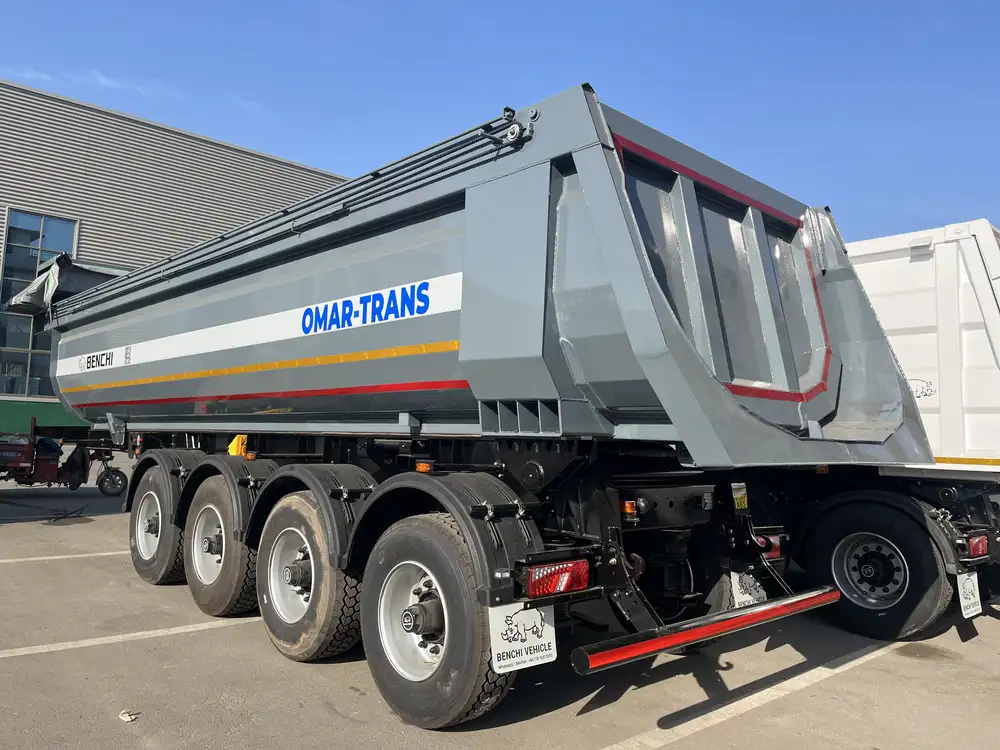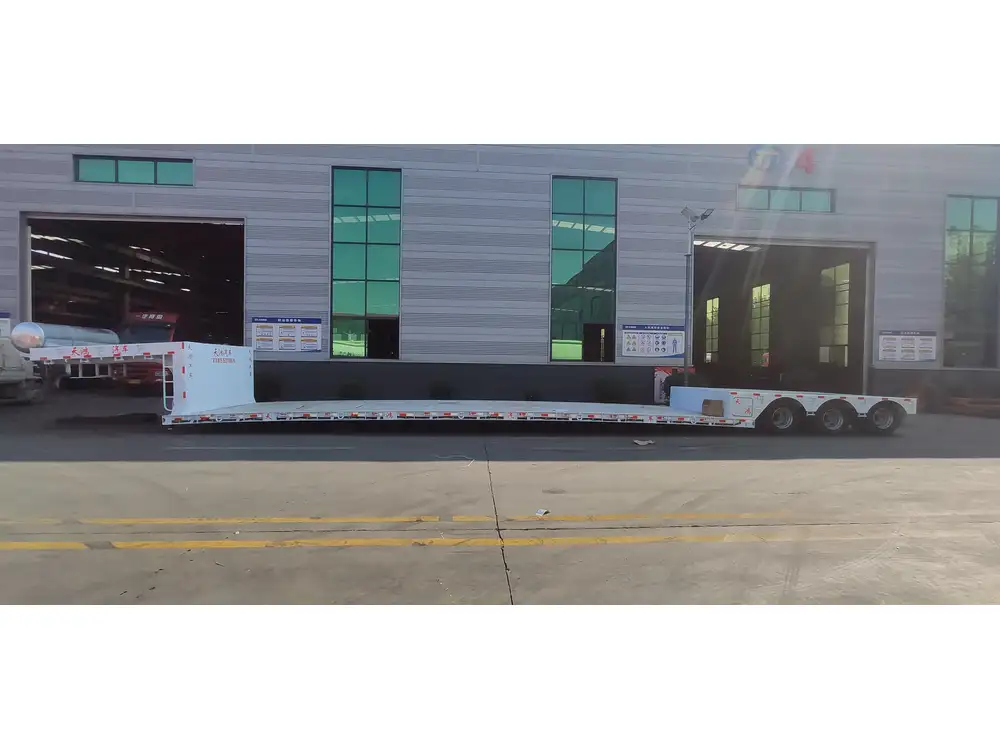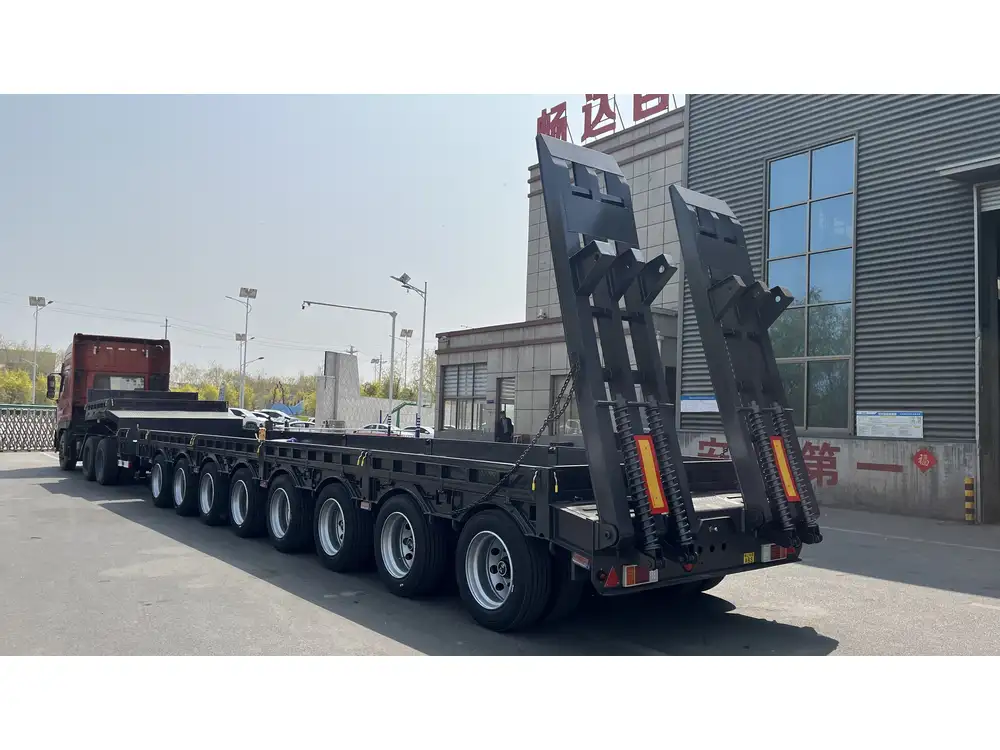When it comes to towing, knowing the weight of a car trailer is paramount. Whether you are a manufacturer, dealer, or end-user, understanding the specifications and regulatory considerations regarding weights can save you time, manpower, and ultimately, ensure safety on the road. In this guide, we delve deep into various aspects of car trailer weights, their implications, and how to make informed decisions.
1. What Influences the Weight of a Car Trailer?
Car trailers come in various forms and configurations, leading to a wide range of weights. The following factors significantly influence these weights:
1.1. Trailer Type
Different trailer types serve unique purposes, and consequently, their weights vary:
| Trailer Type | Average Weight Range |
|---|---|
| Open Car Trailers | 1,000 – 2,500 lbs |
| Enclosed Car Trailers | 2,500 – 5,500 lbs |
| Motorcycle Trailers | 500 – 1,500 lbs |
| Utility Trailers | 1,000 – 3,000 lbs |

1.2. Materials Used
The construction materials impact the weight substantially. For example:
- Steel Trailers: Heavier due to increased durability.
- Aluminum Trailers: Lighter, promoting fuel efficiency when towing.
- Fiberglass Trailers: Typically lightweight, but may not provide the same strength as metals.
1.3. Size and Dimensions
Larger trailers generally weigh more. Compatibility with the vehicle’s towing capacity is crucial, and understanding dimensions can help determine the best fit.
1.4. Additional Features
Features such as ramps, walls, and specialized equipment increase the trailer’s overall weight. For example:
- Ramps can add an additional 100-300 lbs depending on design.
- Sidewalls constructed of heavier materials significantly raise total weight.

2. Legal and Safety Considerations Regarding Trailer Weight
While knowing the weight of your trailer is beneficial for operational purposes, it is equally important to be aware of the legal implications.
2.1. Gross Vehicle Weight Rating (GVWR)
The GVWR is the maximum weight a vehicle (or trailer) can safely carry and is a critical figure that manufacturers must provide. Exceeding this limit can lead to various legal and safety issues.
2.2. Towing Capacity of the Vehicle
Understanding the towing capacity of your vehicle is essential. The car’s manufacturer specifies how much weight it can safely tow, which includes:
- Dry Weight of the Trailer: The weight of the trailer without any cargo.
- Cargo Weight: The total weight of the items transported on the trailer.
| Towing Capacity | Suitable Trailer Weight |
|---|---|
| 2,000 lbs | Up to 1,500 lbs |
| 5,000 lbs | Up to 3,500 lbs |
| 10,000 lbs | Up to 7,500 lbs |

3. Calculating the Total Weight of Your Car Trailer
To avoid overloading your vehicle and ensure safety on the roads, it’s vital to calculate the total weight correctly. The process can be broken down into three primary components:
3.1. Find the Trailer’s Base Weight
Manufacturers typically list the base or dry weight of the trailer.
3.2. Calculate the Weight of the Load
Add the weight of all vehicles or cargo that will be loaded onto the trailer.

3.3. Verify with the Weigh Station
For accurate measurements, use a weigh station. This helps verify that the total weight, inclusive of both trailer and load, doesn’t exceed the legal limits.
4. Common Questions and Myths About Car Trailer Weight
4.1. Does the Weight of the Trailer Include the Weight of Cargo?
No, trailers’ listed weights usually pertain to the base or dry weight exclusive of cargo. Truckers and manufacturers must consider load weight for total hauling specifications.

4.2. Can a Lightweight Trailer Be Just as Strong?
Indeed, lightweight trailers made from high-quality materials like aluminum can be just as strong, assuming they’re designed adequately for their intended purpose.
4.3. How Do I Know If I’m Overloaded?
An overloaded trailer can be identified through a few signs:
- Trailer tipping: If the trailer sways or tips, it may indicate an overload.
- Brake performance: Reduced braking power may reflect excessive weight.
- Tire wear: Uneven tire wear can signal improper loading.
5. The Importance of Regular Weight Assessments
Regularly assessing trailer weight can prevent accidents and ensure compliance with legal standards. Fortunately, many manufacturers provide weight tables and guidelines:
| Assessment | Frequency | Benefits |
|---|---|---|
| Full Load Assessment | Before use | Ensures load compliance and safety |
| Periodic Maintenance | Every 6 months | Identifies potential issues early |
| After Modifications | Immediately | Ensures compliance with new load specifications |

6. Conclusion: Making Weight Considerations Your Priority
In summary, understanding how much a car trailer weighs and the factors influencing these weights is critical for safe towing practices. From selecting the appropriate trailer type to ensuring compliance with weight regulations, awareness is the key to operating effectively and safely.
As a manufacturer, providing your clients with comprehensive data regarding trailer weights helps them make informed decisions. Empower your customers with knowledge and reinforce their trust in your products by prioritizing safety and efficiency.
If you have further questions or require more details, feel free to reach out, as our team is ready to assist you in choosing the right solutions tailored to your needs.
In an industry where every pound matters, let’s ensure every decision made is informed and secure.



